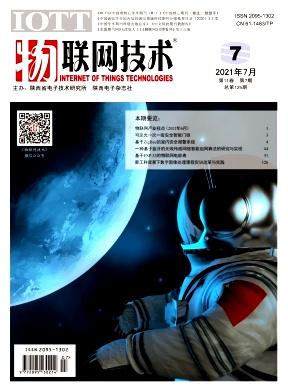Smart Waste Management Scheme using IoT for Metropolitan Cities
引用次数: 0
Abstract
Due to India’s very high population and its direct proportional increase in the quantity of garbage and lack of new land for landfill, there is a very big need for bringing a smart system for garbage collection and management. Using IOT and a smart garbage processor at the ward level will increase the efficiency of the existing system. IoT usage in Waste Management is still in research level. Using Internet and spending a major portion of budget for this infrastructure change may seems to be a luxury for a developing country like India. But to avoid dangerous health hazards for the future generation, bringing this infrastructure change with additional budget amount for waste management is must and inevitable. Any infrastructure can be converted into IoT enabled by making small changes in the equipment used in the existing system. The existing bins kept in the major streets of the city can be easily converted into IoT by implanting sensors and internet connectivity unit. The proposal can be divided into two major levels. In the first level, the aim is to design a smart bin with three sections. One for bio degradable domestic waste, the second for inert debris (soiled diapers and sanitary napkins) and the third for non-bio degradable wastes. If the IoT is used for waste management, it will be easy to monitor all the smart bins and hence the number of trips of heavy vehicles and small vehicles can be reduced. By using the proposed model, the health problems faced by the corporation workers and scavengers can be reduced.大都市使用物联网的智能废物管理计划
由于印度人口众多,垃圾数量呈正比增长,而且缺乏新的填埋土地,因此非常需要一个智能的垃圾收集和管理系统。在病房层面使用物联网和智能垃圾处理器将提高现有系统的效率。物联网在废物管理中的应用仍处于研究阶段。对于印度这样的发展中国家来说,使用互联网和将大部分预算用于基础设施改造似乎是一种奢侈。但是,为了避免对后代造成危险的健康危害,将这种基础设施的变化与额外的废物管理预算数额结合起来是必须和不可避免的。任何基础设施都可以通过对现有系统中使用的设备进行微小更改来转换为物联网。城市主要街道上现有的垃圾箱可以通过植入传感器和互联网连接单元轻松转换为物联网。该提案可分为两个主要层面。在第一个层次,目标是设计一个智能垃圾桶,分为三个部分。一个用于生物可降解的生活垃圾,第二个用于惰性碎片(脏尿布和卫生巾),第三个用于不可生物降解的废物。如果将物联网用于废物管理,则可以轻松监控所有智能垃圾箱,从而减少重型车辆和小型车辆的行程次数。利用所提出的模型,可以减少企业工人和拾荒者面临的健康问题。
本文章由计算机程序翻译,如有差异,请以英文原文为准。
求助全文
约1分钟内获得全文
求助全文

 求助内容:
求助内容: 应助结果提醒方式:
应助结果提醒方式:


